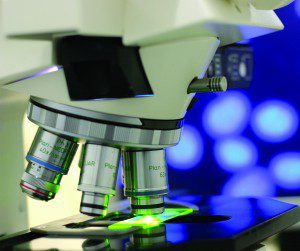By Virginia ‘Ginya’ Carnahan, APR, CPRC – Dattoli Cancer Center & Brachytherapy Research Institute


This month, among other topics, we are reminded about Better Hearing. Very important. I know because I get an invitation to try out a hearing aid at least aonce a week in my mail. We are alerted to the Risk of Melanoma and instructed to always wear sun screen and see a dermatologist annually for a full body exam. Yes – full body. I knew of someone who had melanoma inside his ear, which spread to his brain. Sadly, he is not with us anymore.
May is the month for learning about Better Sleep. I wish I could sleep better – even the new mattress I bought hasn’t helped. (Do you recall that the mattress industry encourages us to buy a new mattress every eight years? Don’t forget. That industry needs your repeat business!) Somewhat related to sleeping is the Correct Posture campaign in May. Stand up straight and sit properly to allow your brain to work well!
One of my biggest fears is highlighted in Lyme Disease Awareness month (yes, in May). There is not yet a Zika Virus Awareness month (that I know of) but we could bundle it with Lyme Disease as both of these serious diseases come to us courtesy of creepy crawly, flying pests. We must be vigilant in avoiding ticks and mosquitoes!
My real reason for addressing you this month is inspired by Cancer Research Month. I have worked in the health care arena for 40 years and in the field of prostate cancer for more than 15. So much progress has been made in understanding cancer, which has been called the “Emperor of All Disease,” but there are still huge challenges in the field that will require decades of research.
Before we can fully understand any of the cancers, we must recognize that “cancer” is an umbrella term for many, many diseases that can appear and invade virtually any organ of the body. And “cancer” is also big business. Each year billions of dollars are raised – and allocated – for cancer research.
When we think of raising money for cancer research, the most probable image that comes to mind is the Pink Ribbon campaign promoted by the Susan G. Komen Foundation for Breast Cancer Research. Since 1982, this one effort has generated more than $847 million (figure from 2014) – and undoubtedly has changed the awareness of breast cancer forever. Many, many advancements in the diagnosis and treatment of this very common cancer have come directly from the Komen “Race for the Cure” worldwide efforts.
In 2008, film and media leaders launched “Stand Up To Cancer” – a simulcast on four major broadcast networks and 28 cable channels. Since that first effort, subsequent Stand Up programs have received “more than $261 million” in pledges. These dollars reportedly have supported 12 teams of researchers, two transnational research teams and 25 young scientists.
Annually the federal government invests close to $5 billion in the National Cancer Institute, one facet of the National Institutes of Health.
There are many smaller organizations that focus on a particular cancer – such as the Lustgarten Foundation that funded $13 million for pancreatic cancer research in 2013. Who can forget NBC Today Show’s Katie Couric demonstrating the importance of colon cancer screening, following the death of her husband to this cancer?
Folks, it is all around us. It is rare to find a family that has not been visited by the specter of cancer. And many organizations and dedicated individuals are searching daily for the “magic cure.” While progress has been made in diagnosing and treating cancer, there is still a long, long way to go. Exciting things are beginning to happen in understanding how the body, under the right circumstances and stimulation, can be taught to fight its own cancer. Gene research and immunotherapy are two areas of concentrated study.
One day we may be able to take a cell sample of an individual’s cancer, analyze it in under a microscope and then create in the lab a specific drug to kill that specific cancer. Or there may be game-
changing discoveries in vaccines that could prevent the growth of tumor cells in the first place.
Cancer research is an exciting place to be today – but it can also mean a lifetime of trying things that never work. I don’t think many researchers go into the field with dreams of winning a Nobel Prize. But every year there is prize given for advancements in medicine. The researchers I have known personally are amazingly dedicated humanitarians who are first intrigued by human life and feel a strong desire to contribute to the sum of knowledge about disease, its prevention and treatment.
What can we do to support their work? Those who are able can contribute funds to research entities. All of us can increase awareness of the risk of disease (especially cancer) and make changes in our personal lives to reduce risk.
Eat right (reduce consumption of red meat, processed foods, fried foods, sugars, salt; increase vegetables and fruits, lean meats, fresh fish, etc.). Watch your weight – exercise 4-5 times a week; do something to make you sweat! Monitor you blood pressure, blood sugar, etc. Take vitamins and supplements, as recommended. Get enough sleep! Enjoy the world around you!
Eliminate known cancer-causing elements from your life. Stop smoking! It may be the most beneficial thing you can do, no matter how long you have smoked. Get your flu vaccine annually. See your doctor once a year and get screened for those cancers that can be found early! Wear a helmet when biking. Do not text and drive. And simple things like look both ways before crossing the street. Live long –and prosper!
1-877-DATTOLI | www.dattoli.com
 Southwest Florida's Health and Wellness Magazine Health and Wellness Articles
Southwest Florida's Health and Wellness Magazine Health and Wellness Articles

